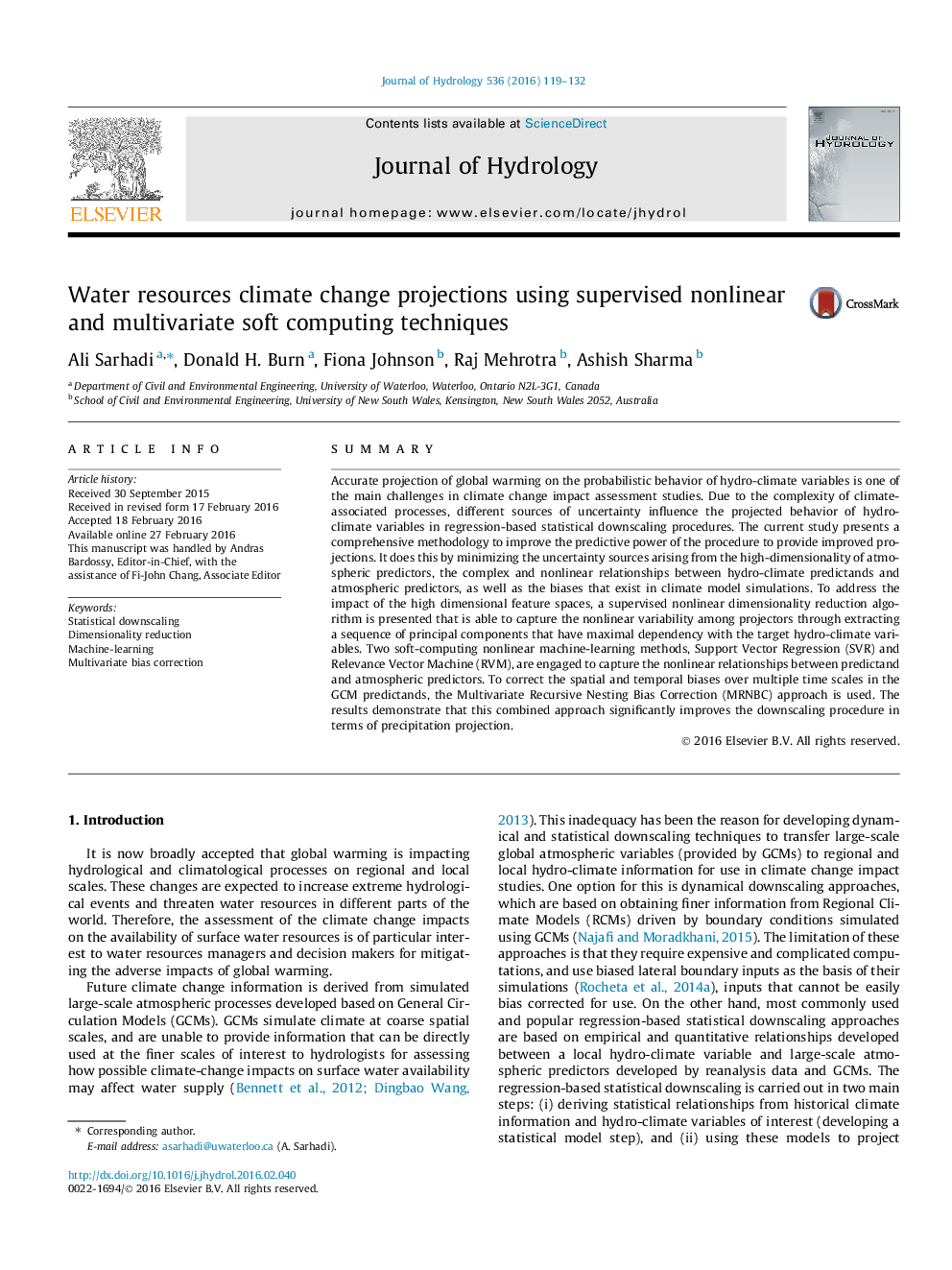| کد مقاله | کد نشریه | سال انتشار | مقاله انگلیسی | نسخه تمام متن |
|---|---|---|---|---|
| 6410005 | 1629916 | 2016 | 14 صفحه PDF | دانلود رایگان |
- A multivariate approach is adopted to correct biases over multiple time scales.
- A kernelized form of supervised dimensionality reduction technique is presented.
- A Bayesian machine-learning algorithm is superior in downscaling modeling.
SummaryAccurate projection of global warming on the probabilistic behavior of hydro-climate variables is one of the main challenges in climate change impact assessment studies. Due to the complexity of climate-associated processes, different sources of uncertainty influence the projected behavior of hydro-climate variables in regression-based statistical downscaling procedures. The current study presents a comprehensive methodology to improve the predictive power of the procedure to provide improved projections. It does this by minimizing the uncertainty sources arising from the high-dimensionality of atmospheric predictors, the complex and nonlinear relationships between hydro-climate predictands and atmospheric predictors, as well as the biases that exist in climate model simulations. To address the impact of the high dimensional feature spaces, a supervised nonlinear dimensionality reduction algorithm is presented that is able to capture the nonlinear variability among projectors through extracting a sequence of principal components that have maximal dependency with the target hydro-climate variables. Two soft-computing nonlinear machine-learning methods, Support Vector Regression (SVR) and Relevance Vector Machine (RVM), are engaged to capture the nonlinear relationships between predictand and atmospheric predictors. To correct the spatial and temporal biases over multiple time scales in the GCM predictands, the Multivariate Recursive Nesting Bias Correction (MRNBC) approach is used. The results demonstrate that this combined approach significantly improves the downscaling procedure in terms of precipitation projection.
115
Journal: Journal of Hydrology - Volume 536, May 2016, Pages 119-132
